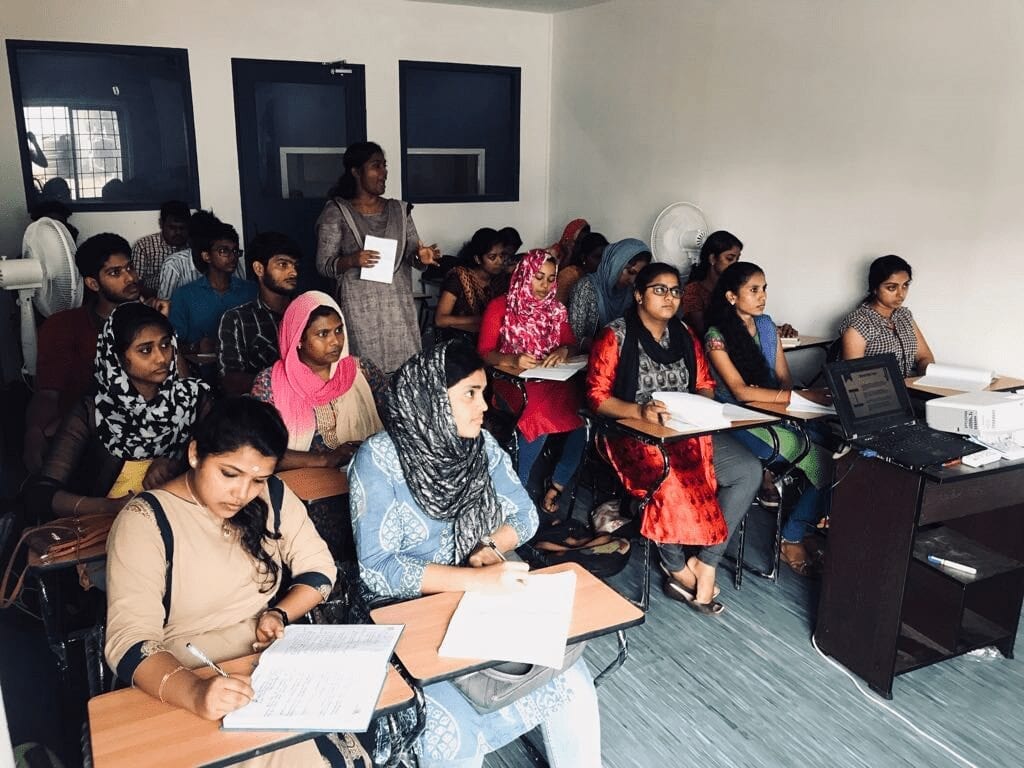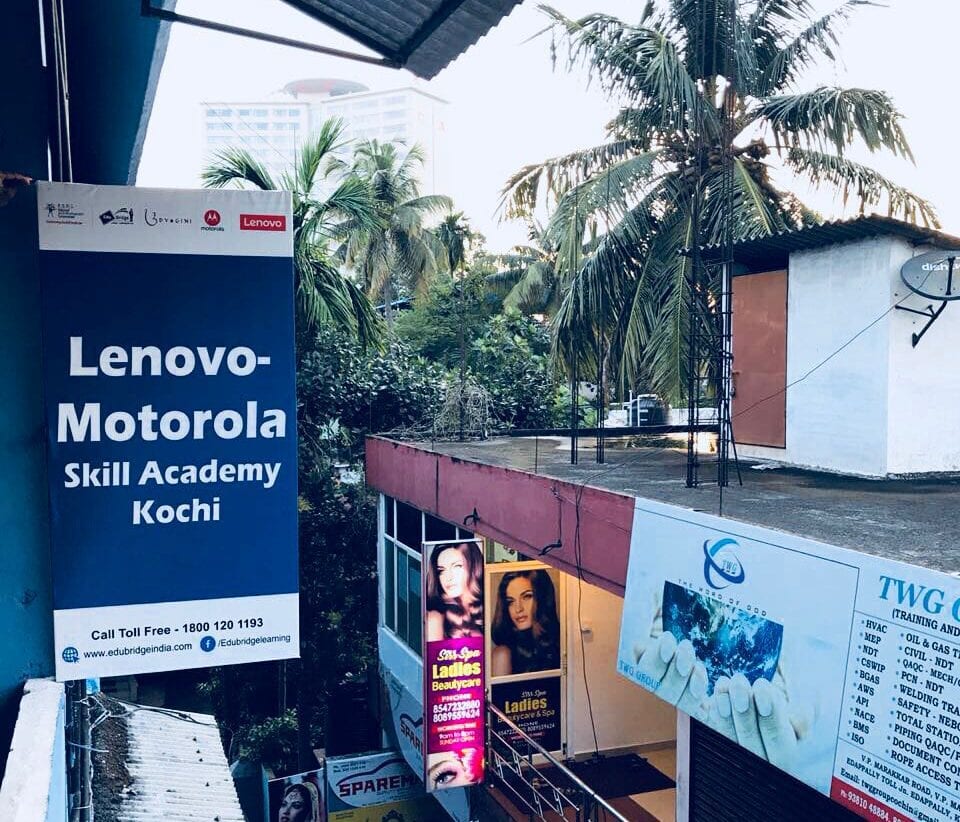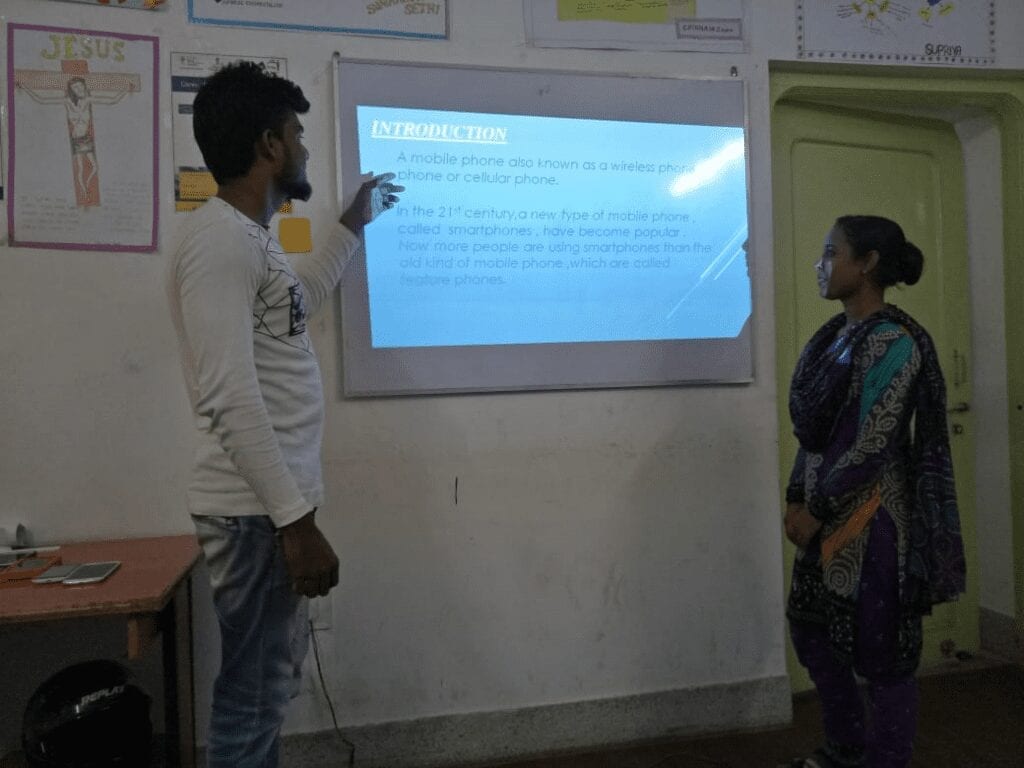We interviewed Viswanat Baminee, Director of Legal & Company Secretary at Lenovo India, to learn about this hands-on training program to help underserved communities, provide valuable training and education, and ultimately address India’s unemployment problem.
Tell us about the Motorola Skills Academy? What’s the Lenovo – EduBridge partnership all about?
There is a growing job crisis in India – in fact, estimates are that more than 25 million unemployed youth are seeking jobs. So, Lenovo-Motorola’s CSR Core Team and Advisory Committee in India wanted to take action. The team launched the Motorola Skills Academy concept to deliver vocational training, access to technology and skills development to underserved communities. The program is for youth between 18-30 years, from low income families living in rural and semi-urban areas in tier1 and tier2 cities. It teaches these youth how to do things like repair laptops, phones and other devices, and trains them in retail sales, customer care, and data entry services.
To launch the program, Lenovo-Motorola worked with Mumbai-based EduBridge, and Delhi-based Udyogini, a non-profit partner. We chose EduBridge for its PAN India presence — it is a partner of National Skill Development Corporation (NSDC) and is focused on training youth to match skills to corporate requirements. So far, EduBridge has helped execute Skill Academies in seven locations across India, with four locations operating to date – Ernakulam, Mysore, Bhubaneshwar and Jodhpur – and three more to follow – Delhi, Chandigarh, and Trichy. Lenovo-Motorola provides 100% of the funding and we are monitoring the programs closely to ensure goals are met.

The results are really impressive. How’s it working?
Extremely well. The intention is to train and improve the skills of 6,900 beneficiaries in 3 years. Among these, 4,800 candidates will be trained from Lenovo-Motorola Skills Academies (centres set-up across all 7 locations for mobilizing, conducting training sessions and undertaking placement activities). The remaining 2,100 candidates will be trained on Digital and Basic Computer skills, Spoken English and Financial Inclusion modules, in partnership with local colleges. The goal is to place at least 70% of the candidates from each location into jobs at the end of their training.

The program seeks to help unemployed youth, particularly those who are women and those with disabilities. How do you get into the program?
First, we started regional and local grassroots marketing programs to spread awareness. That includes everything from seminars, road shows and events to door-to-door mobilization activities in the Skill Academy locations and other areas to help spread the word and encourage more enrollment. Each activity offers program candidates with information on potential job opportunities and criteria for selection.
Once program candidates come to the Skill Academy, they have full access to counseling to select courses that match their interests and eligibility. Each student then goes through a 20-minute test to measure and assess their capabilities. Finally, based on the personal interview, counseling and entrance tests results, the students are either enrolled or rejected for a particular course.

What is the projected timeline for this program? Will it extend beyond the targeted 3 years?
The program will run through March 2021. At that point, we will take a deep dive into the successes, challenges, and impact of the program. Depending on the results, we hope to continue and expand the program. Did you know that the given the use of mobile devices and laptops in India, 800,000 repair professionals will be needed in each state by 2022 to support this demand? This shows how valuable the continuation and expansion of program would be. In addition, adding new locations would help others to join us. Right now, students travel long distances to the Academies, so a residential program could really help students who live further away.
Looking ahead, EduBridge can scale the program efficiently with their technology-driven approach and modern methodologies. This would not only help local communities, but also contribute toward the mission objectives as a whole.
Lenovo aims high: we want to become the pioneer in the laptop/mobile repair sector as well as set the benchmark for others to follow. Overseas expansion can easily happen, and we have the presence and reach to make it a reality. One can only imagine the enormous positive impact that a program of this nature would have, providing much needed training and amazing employment opportunities to individuals across the globe.
